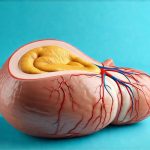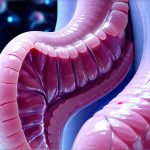Anxiety attacks are incredibly distressing experiences, often characterized by intense fear, physiological sensations, and a sense of losing control. While many associate anxiety with racing thoughts or panic, a surprisingly common element for those experiencing these episodes is physical discomfort – specifically tightness in the stomach accompanied by nausea, and sometimes even vomiting. This isn’t merely a psychological phenomenon; it’s deeply rooted in how our bodies respond to perceived threats, linking the brain, nervous system, and digestive system in complex ways. Understanding this connection can be incredibly validating for those who experience these attacks, moving beyond feeling like something is “wrong” with their body to recognizing it as part of a natural (though intensely unpleasant) stress response.
The link between anxiety and gastrointestinal distress isn’t new – the gut has long been referred to as the “second brain.” This stems from the intricate bidirectional communication pathway known as the gut-brain axis. When we experience stress or fear, our sympathetic nervous system kicks into gear, triggering what’s commonly called “fight or flight.” This response prioritizes immediate survival needs, diverting resources away from non-essential functions like digestion. Simultaneously, cortisol – the stress hormone – surges through the body, impacting gut motility, inflammation levels, and even the microbiome (the community of bacteria in our digestive system). The result is often a cascade of physical symptoms that can mimic or exacerbate gastrointestinal issues, leading to the tightness and nausea many anxiety sufferers experience.
The Gut-Brain Axis & Anxiety’s Physical Manifestation
The gut-brain axis isn’t just about one-way communication from the brain to the gut; it’s a two-way street. Our gut microbiome significantly influences neurotransmitter production, including serotonin (often called the “happy hormone”) and GABA (a calming neurotransmitter). An imbalance in gut bacteria – often triggered by stress or poor diet – can affect these neurotransmitter levels, potentially contributing to increased anxiety and mood disturbances. This creates a vicious cycle where anxiety impacts the gut, and an unhealthy gut exacerbates anxiety symptoms. It’s important to remember this isn’t simply “in your head;” it’s a very real physiological interplay between two critical body systems. You may find more information about imbalances in gut imbalance.
The sensation of tightness in the stomach during an anxiety attack is often related to muscle tension. When the fight-or-flight response activates, muscles throughout the body tense up, preparing for action. This includes the abdominal muscles, which can constrict and cause a feeling of pressure or tightness. Simultaneously, blood flow is redirected away from the digestive system and towards muscles needed for quick reaction – further slowing down digestion and potentially leading to nausea. The combination of muscle tension, altered blood flow, and hormonal changes creates a potent physical experience that can be incredibly frightening for those who don’t understand its origin.
Furthermore, anxiety can directly impact gastric emptying – the rate at which food moves from the stomach to the small intestine. Stress slows down this process, causing food to remain in the stomach longer, contributing to feelings of fullness, bloating, and nausea. This is why many people with anxiety find their appetite decreases during stressful periods or experience discomfort after eating even small amounts of food. The physiological changes aren’t a sign of illness; they are part of the body’s natural, albeit overwhelming, response to perceived danger.
Recognizing & Managing Anxiety-Related Gastrointestinal Symptoms
It’s crucial to differentiate between anxiety-related gastrointestinal symptoms and underlying medical conditions. If you experience persistent or severe stomach problems, it’s essential to consult a healthcare professional to rule out other potential causes like irritable bowel syndrome (IBS), food allergies, or ulcers. However, if your symptoms consistently coincide with periods of heightened anxiety, it’s more likely related to the gut-brain axis and the stress response. Once identified as anxiety-related, there are strategies you can employ to manage these physical manifestations.
Managing anxiety effectively is the cornerstone of alleviating gastrointestinal distress. This might involve a combination of approaches tailored to your individual needs. Techniques like deep breathing exercises, progressive muscle relaxation, mindfulness meditation, and cognitive behavioral therapy (CBT) can all help regulate the nervous system and reduce overall anxiety levels. Regular physical activity also plays a role, as exercise releases endorphins – natural mood boosters that can counteract stress hormones. Additionally, dietary changes focusing on gut health – such as incorporating probiotic-rich foods (yogurt, kefir, sauerkraut) and prebiotic fibers (fruits, vegetables, whole grains) – may help support a healthy microbiome and improve digestive function. You might find it helpful to learn about foods that trigger these issues.
Understanding the Vagal Nerve Connection
The vagal nerve is a crucial component in understanding this connection. It’s the longest cranial nerve in the body, acting as a direct line of communication between the gut and the brain. A significant portion of this nerve’s fibers are dedicated to transmitting information about digestive function. During anxiety, the vagus nerve can become dysregulated, leading to impaired digestion and increased sensitivity to gastrointestinal sensations.
Vagal nerve stimulation techniques, such as deep diaphragmatic breathing (belly breathing), cold water immersion, or even gargling vigorously with water, have been shown to help calm the nervous system and improve gut function. These methods essentially “reset” the vagal tone, promoting a sense of calm and reducing anxiety-related physical symptoms. Learning to consciously activate your vagus nerve can be a powerful tool in managing both the psychological and physiological aspects of anxiety.
The Role of Cortisol & Inflammation
Cortisol, released during times of stress, has a significant impact on gut health. Chronically elevated cortisol levels can disrupt the balance of the gut microbiome, leading to increased intestinal permeability – often referred to as “leaky gut.” This allows undigested food particles and toxins to enter the bloodstream, triggering inflammation throughout the body, including the brain.
Inflammation is increasingly recognized as a key contributor to anxiety and depression. Reducing cortisol levels through stress management techniques (meditation, yoga, mindfulness) and adopting an anti-inflammatory diet rich in fruits, vegetables, and omega-3 fatty acids can help mitigate this cycle. Prioritizing sleep is also essential, as sleep deprivation exacerbates cortisol production and inflammation. It’s important to understand the role of gut inflammation in these processes.
Practical Coping Strategies During an Attack
When experiencing an anxiety attack with stomach tightness and nausea, it’s important to remember that these sensations are temporary and not life-threatening. Here are some practical coping strategies:
- Focus on your breath: Slow, deep diaphragmatic breathing can help activate the vagus nerve and calm the nervous system.
- Grounding techniques: Engage your senses – name five things you can see, four things you can touch, three things you can hear, two things you can smell, and one thing you can taste. This helps bring you back to the present moment.
- Gentle movement: If possible, try gentle stretching or walking around. Movement can help release muscle tension and distract from physical discomfort.
- Hydrate slowly: Sip small amounts of water – avoiding large gulps which might worsen nausea.
- Remind yourself it will pass: Anxiety attacks are intense but ultimately temporary. Remind yourself that the sensations will subside, even if it doesn’t feel like it in the moment.
These strategies aren’t cures for anxiety, but they can provide immediate relief and empower you to navigate these challenging experiences with greater confidence and self-compassion. Ultimately, understanding the intricate connection between your brain, gut, and nervous system is the first step towards managing anxiety and regaining control over your physical and emotional well-being. Also consider how meal timing may affect symptoms. And, be mindful of why carbonated drinks can exacerbate the issue. Finally, it’s worth exploring probiotics.


















